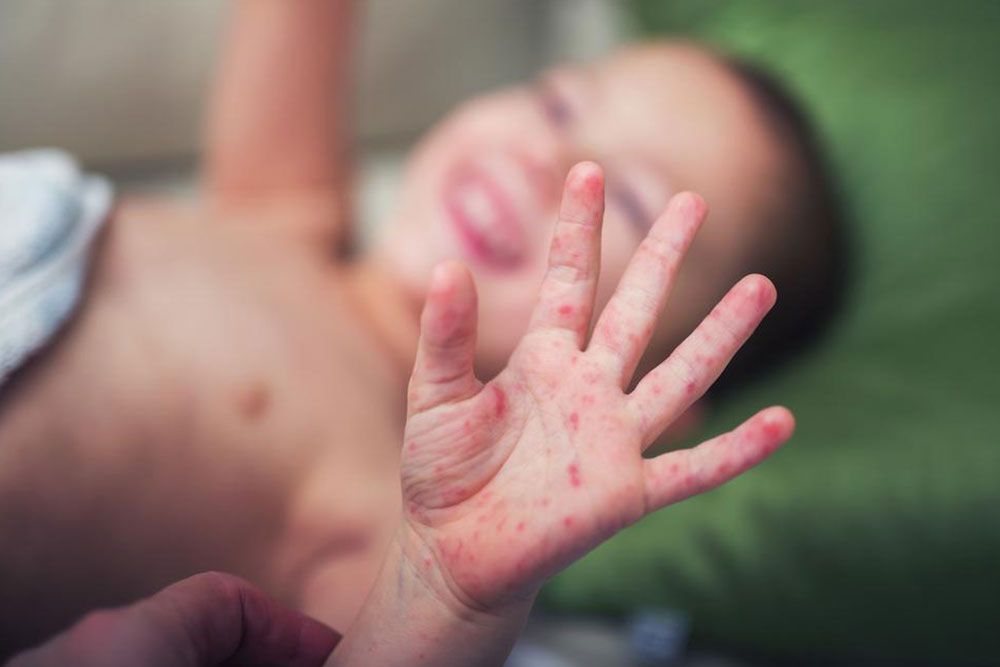Causes and symptoms of Hand-foot-and-mouth disease
No matter how much we try to alter our lifestyle by exercising and eating healthy, we are still prone to disease as trivial as a common cold. As adults, we are safe from a variety of ailments owing to our strong immune system, but the same cannot be said about children. Children are prone to a variety of illness and hand-foot-and-mouth being one of them.
Hand-foot-and-mouth disease is a common disease among children, but adults too are prone to it. This disease is characterized by the appearance of painful sores on the hands, mouth, feet, and at times can spread to the legs and buttocks as well.

What causes the hand-foot-and-mouth disease?
The hand-foot-and-mouth disease is caused by coxsackievirus A16, which belongs to the group of viruses called nonpolio enterovirus. The child can contract this disease if it comes in contact with someone who’s already suffering from it. It is a contagious condition since it spreads easily through coughing and sneezing.
Symptoms of hand-foot-and-mouth disease
The hand-foot-and-mouth disease is characterized by an outbreak of painful sores on the hands, feet, mouth, legs, and buttocks as well. However, before the disease manifests itself completely, the child shows symptoms of this disease, the diagnoses of which will allow timely treatment.
- Fever- Fever is the first symptom of the hand-foot-and-mouth disease. The child might have a fever ranging from 101°C to 103°C. Fever is the indication of the onset of the inevitable hand-foot-and mouth disease. Three days into the fever, other symptoms of hand-foot-and-mouth fever starts surfacing.
- A sore throat- A sore throat too is a symptom of hand-foot-and-mouth disease. The child can get infected if an affected person sneezes or coughs in their vicinity. The child might experience rawness in their throat that makes it difficult for them to eat or drink water and can add to the fever if the child is down with one.
- Blisters- The main symptom of hand-foot-and-mouth disease is the appearance of painful blisters and angry red sores on the hand, foot, and mouth. The blisters make it difficult for the child to eat, drink, walk, etc. in short to perform their daily activities. If anyone else comes in contact with the fluid oozing from the blister, they too can get infected.
- Loss of appetite- When the child or an adult is affected by the hand-foot-and-mouth disease, they will suffer a loss of appetite. What makes this condition worse is the presence of blisters in the mouth, which hinder the process of eating.
Though the disease causes great discomfort, it can be treated with the help of the right medication.

